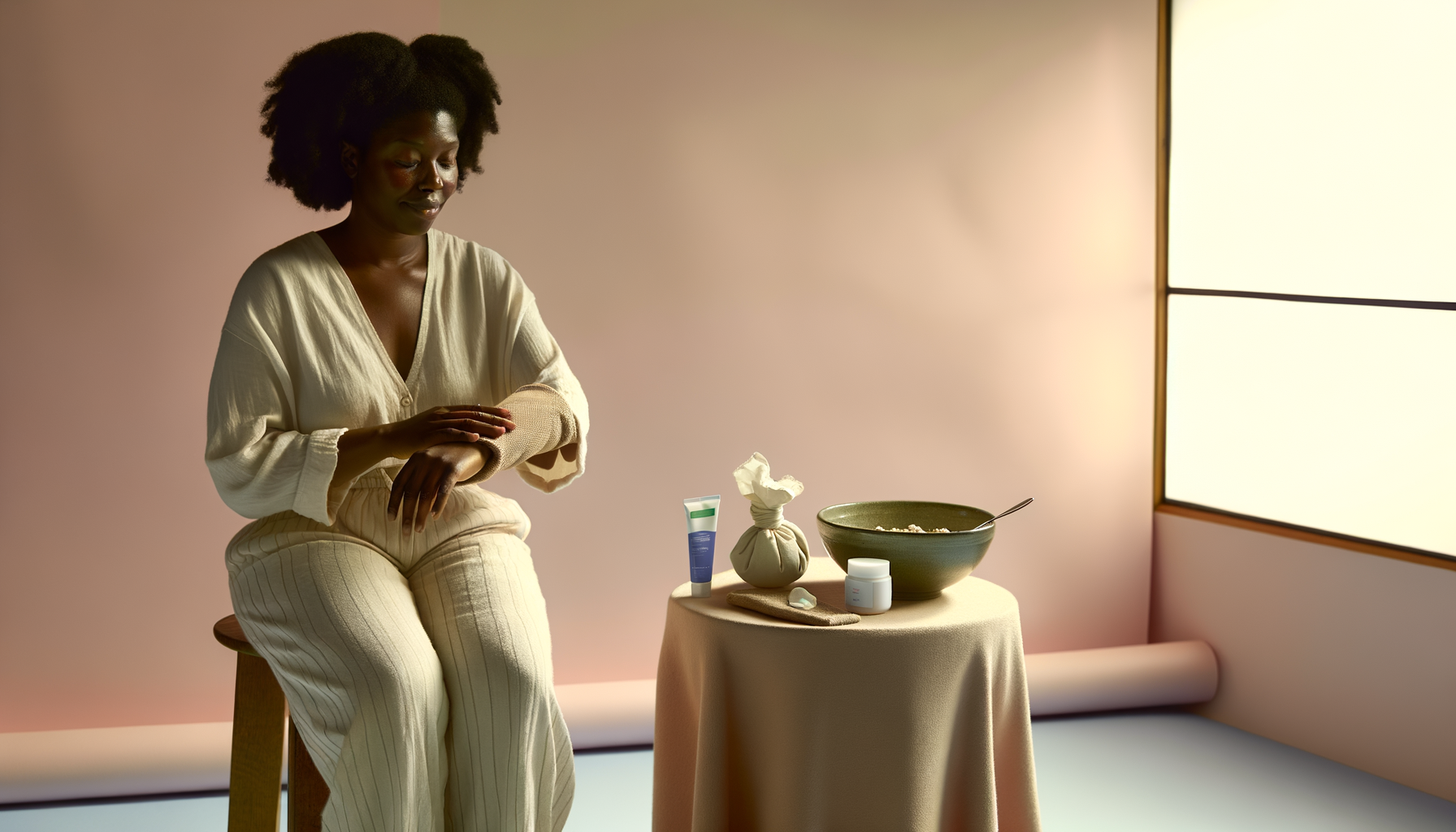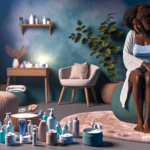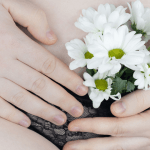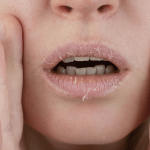Understanding Vulvar Irritation
Vulvar irritation refers to discomfort in the vulva, the external part of the female genitalia. Symptoms can include itching, burning, swelling, soreness, and pain, which may affect the labia, clitoris, urethra, and vaginal opening. While temporary irritation is often not a cause for concern, persistent or severe symptoms may indicate an underlying condition.
Anatomy of the Vulva
The vulva encompasses the labia majora and minora (outer and inner lips), the clitoris, and the urethral and vaginal openings. It is a sensitive area with a rich supply of blood vessels and nerve endings, making it susceptible to irritation from various internal and external factors.
Common Causes of Irritation
Irritation of the vulva can arise from a multitude of sources. Common causes include:
- Skincare and hygiene products: Soaps, lotions, and detergents containing water and chemicals!
- Friction: Tight clothing or prolonged activities that cause chafing.
- Hair removal: Shaving or waxing can lead to folliculitis or ingrown hairs.
- Infections: Yeast, bacterial infections, and sexually transmitted infections (STIs).
- Hormonal changes: Menstrual cycle, pregnancy, breastfeeding, and menopause can all affect vulvar sensitivity.
- Autoimmune disorders and skin conditions: Such as psoriasis, lichen planus, and lichen sclerosus.
When to Seek Medical Attention
It is important to consult a healthcare provider if:
- You experience severe or persistent symptoms that do not improve with home care.
- There are signs of infection, such as fever or swollen lymph nodes.
- You have recurrent pain during sexual activity or other symptoms that affect your quality of life.
- You suspect exposure to an STI or have symptoms indicative of one.
Early diagnosis and treatment can alleviate discomfort and prevent complications. A healthcare provider can perform tests, such as urinalysis and vaginal swabs, to identify the cause of vulvar irritation and recommend appropriate treatment.
Common Conditions Leading to Vulvar Irritation
Folliculitis and Hair Removal Complications
Folliculitis is an inflammation or infection of the hair follicles that can cause significant discomfort in the vulvar area. It often arises from hair removal methods such as shaving, waxing, or other forms of depilation, leading to symptoms like red, painful bumps, commonly referred to as “razor burn,” or ingrown hairs. To treat these conditions, it’s advisable to wear loose clothing, apply cool or warm compresses, and use over-the-counter hydrocortisone cream or antibiotic ointment to alleviate itching and prevent infection. If symptoms persist, seeking medical attention is necessary.
Contact Dermatitis and Allergic Reactions
Contact dermatitis is a skin reaction resulting from exposure to irritants or allergens. Common vulvar irritants include perfumed soaps, laundry detergents, and fabric softeners. Symptoms may include itching, burning, swelling, tenderness, and a red rash. Treatment involves identifying and eliminating the offending substance, washing the area with mild soap, applying ice packs, petroleum jelly, or topical anti-itch medications like hydrocortisone cream, and taking oral antihistamines to reduce symptoms.
Hormonal Fluctuations and Their Impact
Hormonal changes during the menstrual cycle, pregnancy, breastfeeding, or conditions like PCOS can lead to vulvar irritation. Menopause-related estrogen drops can cause the vulvar skin to become drier, thinner, and less elastic, increasing vulnerability to irritation. Treatments include OTC vaginal moisturizers or lubricants, and in more severe cases, healthcare providers may recommend hormonal birth control or estrogen-based vaginal therapy.
Infections: Yeast, Bacterial, and STIs
Yeast infections, caused by an overgrowth of Candida fungus, present symptoms like itching, discharge, and discomfort. They are typically treated with OTC antifungal medications. Bacterial vaginosis (BV) is characterized by an imbalance of vaginal bacteria, leading to symptoms like discharge and a fishy odor. Prescription oral or topical antibiotics are used for treatment. Sexually transmitted infections (STIs) can also cause vulvar irritation, with symptoms ranging from painful urination to unusual discharge and sores. Treatment for STIs usually involves antibiotic or antiviral medications, and it’s crucial to complete the full course of treatment and abstain from sexual activity until the infection is cleared.
Each of these conditions can significantly impact the quality of life and may require different approaches for management and treatment. It’s essential to consult a healthcare provider for proper diagnosis and to determine the most appropriate treatment plan.
Autoimmune Disorders and Skin Conditions
Psoriasis and Its Manifestations
Psoriasis is an autoimmune condition that accelerates the life cycle of skin cells, leading to a buildup that forms scales and red patches. When it affects the vulva, it can cause considerable discomfort and embarrassment. Symptoms of genital psoriasis may include redness, scaling, and severe itching. Unlike psoriasis elsewhere on the body, vulvar psoriasis usually presents as smooth, non-scaly patches. Treatment typically involves topical corticosteroids and emollients, which can help to reduce inflammation and soothe the affected skin. In more severe cases, systemic treatments such as biologics may be prescribed.
Lichen Planus and Lichen Sclerosus
Lichen planus is an inflammatory condition that can affect the vulva, presenting as purplish, itchy, flat-topped bumps. Lichen sclerosus, on the other hand, is characterized by white, thin, and wrinkled patches of skin, often leading to itching and discomfort. Both conditions can cause scarring and affect sexual function. While the exact cause of these conditions is not fully understood, they are believed to have an autoimmune component. Treatment for lichen planus may include corticosteroids and immune-modulating drugs, whereas lichen sclerosus is commonly treated with potent topical steroids to reduce inflammation and prevent further scarring.
Lichen Simplex Chronicus
Lichen simplex chronicus is a skin disorder characterized by chronic itching and scratching, which leads to thickened, leathery skin. This condition often arises in response to repeated irritation or scratching, creating a cycle of itching and scratching that exacerbates the problem. Treatment focuses on breaking this cycle with the help of topical corticosteroids, antihistamines to reduce itching, and sometimes, counseling to address any underlying psychological components.
Vulvodynia: Chronic Pain Syndrome
Vulvodynia is a chronic pain condition affecting the vulva, where pain is felt without an obvious cause. The pain can be burning, stinging, or rawness, and it may be constant or intermittent. The exact cause of vulvodynia is unknown, but it is thought to be related to factors such as nerve injury, inflammation, or genetic predisposition. Treatment is often multifaceted, including medication for pain relief, physical therapy, counseling, and sometimes surgery. Lifestyle modifications, such as wearing loose-fitting clothing and avoiding potential irritants, can also be beneficial.
It is important for individuals with these conditions to seek medical attention for proper diagnosis and treatment. Regular follow-up care is essential to manage symptoms effectively and to monitor for any potential complications, such as an increased risk of squamous cell carcinoma in the case of lichen sclerosus.
Age-Related Changes and Vulvar Health
Perimenopause and Menopause
As women approach perimenopause and eventually menopause, they experience significant hormonal fluctuations that can impact vulvar health. The decline in estrogen levels during this period can lead to a variety of symptoms affecting the vulva. Estrogen is instrumental in maintaining the thickness, elasticity, and lubrication of the vulvar and vaginal tissues. With its reduction, women may notice increased dryness, irritation, and a general sense of discomfort in the vulvar region. These changes can make the vulva more susceptible to irritation and injury, potentially exacerbating any existing conditions or predisposing women to new issues.
During menopause, which is marked by the cessation of menstrual periods for over a year, the vulvar and vaginal tissues often become thinner and less elastic—a condition known as vulvovaginal atrophy. This can lead to symptoms such as itching, stinging, dryness, and even tiny cracks or cuts that can be quite uncomfortable. The reduced estrogen levels also affect the vaginal flora, which can alter the pH balance of the vagina, making it more prone to infections.
Vulvar Atrophy and Vaginal Dryness
Vulvar atrophy and vaginal dryness are common complaints among postmenopausal women. The lack of estrogen leads to a decrease in the production of vaginal secretions, resulting in dryness that can cause discomfort during daily activities and sexual intercourse. This dryness can also increase the risk of vulvar irritation and urinary tract infections due to the proximity of the urethral opening to the vagina.
To manage these symptoms, women may turn to over-the-counter vaginal moisturizers or lubricants. Vaginal moisturizers can provide a continuous moisturizing effect, helping the vaginal tissues retain moisture over time. Water-based or silicone-based lubricants can be applied before sexual activity to reduce friction and enhance comfort. For those who do not find relief with these methods, it may be necessary to consult a healthcare provider. They might recommend hormonal therapies, such as low-dose vaginal estrogen in the form of creams, tablets, or rings, which can help restore the health of vulvar and vaginal tissues.
It is important for women to recognize these age-related changes and seek appropriate treatment. By addressing vulvar and vaginal health proactively, women can maintain their quality of life and sexual well-being during and after the transition into menopause.
Do you know the three main ways that your body gets in touch with harmful chemicals with everyday products? Knowledge is Power!
The Ultimate Detox Guide will tell you how to lower your exposure to harmful chemicals!

Precancerous and Cancerous Conditions
Vulvar Intraepithelial Neoplasia (VIN)
Vulvar Intraepithelial Neoplasia, commonly referred to as VIN, is a precancerous condition characterized by changes in the skin cells that cover the vulva. These changes can range from minor to severe and are classified accordingly. While VIN itself is not cancer, it is a significant concern because, if left untreated, it can progress to vulvar cancer over time, often many years.
Symptoms of VIN may include:
- Itching or a sensation of burning or soreness in the vulvar area
- Visible changes in the vulvar skin, such as redness or patches that appear white or discolored
- Raised skin lesions that may resemble moles or freckles
- Discomfort or pain during sexual intercourse
Treatment for VIN depends on several factors, including the extent of the skin changes and the risk of progression to cancer. Options may include:
- Topical steroid creams to reduce inflammation
- Application of topical chemotherapy creams to remove abnormal cells
- Laser therapy to target and destroy affected areas
- Surgical removal of the area with abnormal cells
- In extensive cases, a vulvectomy, which is the removal of the entire vulva, may be necessary
Regular follow-up visits are crucial as VIN can recur even after treatment. Vaccination against HPV, which is associated with the development of VIN, may help prevent the condition.
Vulvar Cancer: Risks and Symptoms
Vulvar cancer arises from the abnormal growth of cells in the vulva and can develop from pre-existing conditions like VIN. It is a rare form of cancer that typically affects women who have gone through menopause, although it can occur in younger women as well. The most common type of vulvar cancer is squamous cell carcinoma, but other forms include melanoma, sarcoma, adenocarcinoma, and basal cell carcinoma.
Risk factors for vulvar cancer include:
- Presence of precancerous conditions such as VIN
- Infection with human papillomavirus (HPV)
- History of cervical or vaginal cancer
- Chronic skin conditions like lichen sclerosus
- Smoking tobacco
- Immunosuppression, such as from HIV infection or organ transplantation
Symptoms of vulvar cancer may include:
- Itching, burning, or soreness of the vulva
- Visible lumps, sores, or wart-like growths on the vulva
- Thickened, raised patches of skin that may have different colors
- Unusual bleeding or discharge
- Painful urination
- Pain or tenderness in the vulva
- Swollen lymph nodes in the groin area
Treatment for vulvar cancer is tailored to the individual’s health, the stage of cancer, and whether it is a new diagnosis or a recurrence. The mainstay of treatment is surgery, aiming to remove all cancer while preserving sexual function. Other treatments may include laser surgery, local excision, vulvectomy, and in advanced cases, pelvic exenteration. Additional therapies such as radiation therapy, chemotherapy, and immunotherapy may be used to target cancer cells and prevent recurrence.
Following treatment, regular monitoring is essential to ensure the cancer has not returned. This may involve the same diagnostic procedures used initially to diagnose and stage the cancer. It is important for individuals to discuss their treatment options, potential side effects, and follow-up care with their healthcare provider to make informed decisions about their health.

Treatment Options for Vulvar Irritation
Home Remedies and Self-Care
For mild vulvar irritation, several home remedies and self-care measures can be effective. Loose-fitting clothing can reduce friction and irritation, while cool compresses may alleviate swelling and discomfort. Warm compresses can soothe pain and tenderness. Over-the-counter hydrocortisone creams can relieve itching, and antibiotic ointments like Neosporin can help prevent infection. Additionally, regular washing with mild soap and lukewarm water can remove irritants, and applying a thin layer of petroleum jelly can protect the skin. Oral antihistamines, such as diphenhydramine (Benadryl), can reduce overall symptoms, and oatmeal baths can provide soothing relief.
Over-the-Counter Medications
Many cases of vulvar irritation can be treated with over-the-counter medications. Antifungal creams or suppositories are available for yeast infections, and they should be used as directed for the full course of treatment. Topical anti-itch medications, such as hydrocortisone cream (Cortisone10), can alleviate itching and irritation. It’s important to follow the instructions on the packaging and consult with a healthcare provider if symptoms persist.
Prescription Treatments
When over-the-counter options are insufficient, prescription treatments may be necessary. Healthcare providers can prescribe stronger antifungal or antibacterial medications for infections. Hormonal treatments, such as birth control or estrogen-based therapies, may be recommended for irritation due to hormonal fluctuations. For autoimmune conditions like psoriasis, prescription-strength steroid creams or systemic medications may be advised. In cases of vulvodynia, a multidisciplinary approach may include medications like antidepressants, anticonvulsants, or muscle relaxants.
Surgical Interventions
Surgery is generally reserved for severe cases or when other treatments have failed. Procedures like vestibulectomy may be performed for conditions like provoked vestibulodynia. For precancerous conditions like VIN or vulvar cancer, surgical removal of abnormal cells or affected areas may be necessary. It’s crucial to discuss the potential benefits and risks of surgery with a healthcare provider.
Lifestyle Modifications and Preventative Measures
Lifestyle changes can play a significant role in preventing and managing vulvar irritation. Avoiding known irritants, such as certain soaps, fabrics, or hygiene products, is essential. Wearing breathable cotton underwear and avoiding tight clothing can reduce irritation. Regularly applying vaginal moisturizers or lubricants can prevent dryness and discomfort, especially during sexual activity. Additionally, maintaining good hygiene and seeking regular medical check-ups can help detect and address issues early on.

Popular Read
Navigating Healthcare for Vulvar Health
When to Consult a Healthcare Provider
Recognizing when to seek medical attention for vulvar irritation is crucial for effective treatment and peace of mind. It is advisable to consult a healthcare provider if you experience persistent redness, swelling, intense itching, or if you notice any unusual discharge. Additionally, if symptoms worsen or do not improve with over-the-counter treatments, professional evaluation is necessary. Women experiencing vulvar irritation before puberty, after menopause, or those with a history of skin conditions should be particularly vigilant.
Diagnostic Procedures
Accurate diagnosis is the cornerstone of effective treatment. During a consultation, a healthcare provider will take a comprehensive medical history and perform a physical and pelvic exam. Diagnostic procedures may include:
- Blood tests: To check for infections or hormonal imbalances.
- Urine tests: To rule out urinary tract infections.
- Tests for sexually transmitted diseases (STDs): To identify infections that may cause vulvar irritation.
- Pap test: A microscopic exam of cells from the cervix to detect precancerous changes and other conditions.
- Biopsy: If the vulvar skin appears abnormal, a small tissue sample may be taken for further examination.
Interdisciplinary Approaches to Treatment
Effective management of vulvar irritation often requires a multidisciplinary approach. Depending on the underlying cause, treatment may involve:
- Medications: Such as cortisone creams, estrogen cream, or antihistamines.
- Physical therapy: Including pelvic floor therapy and biofeedback to ease pain and improve quality of life.
- Psychotherapy: Cognitive behavioral therapy and couples or sex therapy can help manage the psychological impact of chronic vulvar pain.
- Surgery: In select cases, such as vulvodynia unresponsive to other treatments, surgery may be considered.
- Alternative medicine: Techniques like acupuncture and mindfulness may complement traditional treatments.
Monitoring and Follow-Up Care
After initiating treatment, ongoing monitoring is essential to ensure the effectiveness of the therapy and to make adjustments as needed. Follow-up care may include:
- Regular appointments to assess symptom progression and treatment response.
- Education on self-care practices to prevent exacerbation of symptoms.
- Discussion of any new symptoms or side effects of treatment.
Patients should be encouraged to maintain open communication with their healthcare provider and report any concerns promptly. By actively participating in their care, patients can help manage their vulvar health effectively.










